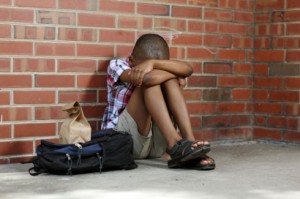Is It Ever OK to Discipline Someone Else’s Kid?

The holidays are almost upon us, and whether you’re planning on hosting a gathering at your home this year or packing up the kids and visiting friends and family, you’re probably going to find yourself interacting with kids that aren’t your own. You may even find yourself in a situation where you’re asking, ‘Is it OK to discipline other people’s kids?’ While this varies by situation, here are three cases in which you can definitely step in and encourage a new behaviour.
- When the child is in your care (at your house, in your car, etc.)
- When the child is hurting you or your child
- When the child might hurt him/herself and there is no one around to stop it.
So how do we do it?
- When you have children coming to your house or they are in your care, we encourage you to set the expectations and consequences as soon as they arrive. Be sure to include lots of ‘do’ language, highlighting what the kids can do rather than what they can’t do.
- When you see misbehaviour, use ‘I’ language and apply the consequence. ‘I see people throwing cars. Cars drive on the floor. When you can show me how to use the cars properly, you can try again.’
- You may need to redirect behaviour and/or include the kids in a problem solving process so that they can figure out how to work together.
- When another child is harming your child, you can definitely step in, especially if the other parent is not. Again, use ‘I’ language. Rather than saying, ‘You pushed my kid, you better leave him alone!’ you can say, ‘I see you touching Jack. If you need him to move, please use your words and keep your hands to yourself.’
- If you see a child who will hurt herself, someone else, or something and no other parent is there, you can certainly step in. Again describe what you see and then suggest an alternative. You might also ask, ‘What do you need to be doing right now?’ or ‘How can I help you to stay safe?’
Finally, the root word of discipline is ‘disciple’. It is about teaching proper behaviour, not about punishing or getting revenge. This is essential to keep in mind, especially when another child is hurting your child.
Image of stress from Shutterstock.














